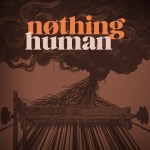
Michael unpacks how the three powers relate to trauma by drawing from the book Redeeming Heartache: How Past Suffering Reveals Our True Calling, by Dr. Dan Allender and Cathy Loerzel. Allender and Loerzel helpfully categorize trauma into three biblical categories: the traumas of orphan, stranger, and widow. They then go on to connect these trauma categories to the three offices of prophet, priest, and king, claiming that the path to healing your core trauma is by pursuing the redemptive calling that trauma reveals. Michael integrates and clarifies their insights with three powers categories, revealing in this integration what Michael thinks are gaps and mistakes in Allender’s and Loerzel’s mostly productive analysis.
LINKS
Redeeming Heartache: How Past Suffering Reveals Our True Calling, by Dr. Dan Allender and Cathy Loerzel
Brian Regan, Standing Up, “Kids” (~7:25–8:14)

Michael, this was so good! Such a fitting ending to the series. The comment you made about how meeting in others the deep need you feel requires giving up trying to get that need met for yourself was particularly powerful to me. It turned what I was seeing as an injustice, or at least a continual kind of death, into something of power and worth, where I can be an instrument of life. I know that I will need to return, again and again, to remember that God alone can meet my needs and that it is a privilege, not an injustice, to see and minister to that same need in others, but now, at least, I can see that this lopsidedness is a way to serve God and not something I need to fix or change.
Thank you! I’m glad it was meaningful to you. I do believe the difference between victimhood and empowerment in this is the ability to make a choice freely for yourself. I tried to be clear in the podcast that no one should make that choice for another person, but making that choice for yourself (to turn your unmet expectations inside out) can be extraordinarily transformative. I’m really happy this made sense for you.
Yes, I think that distinction was really clear.